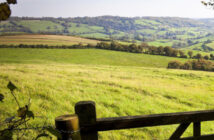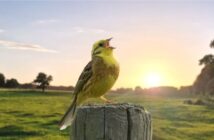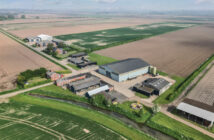With wet weather setting in, a new emergency approval for Cuprokylt in apples and pears has been granted at a key time of the season for protection against Nectria canker.
The derogation for protectant fungicide Cuprokylt (copper oxychloride) is available for use in apples and pears until 30 November 2018, subject to a written recommendation from a BASIS qualified agronomist.
Rob Saunders, Hutchinson’s Agronomist and Chair of the AHDB Tree Fruit Panel, explains that trees are at most risk from canker infection during leaf fall, when thousands of scars leave entry points for spores to penetrate.
“Wet weather during leaf fall allows leaf scar infections to become established,” he says. “The main challenge for growers is that leaf fall occurs over a period of time, but there are limited chemical controls available.
“Leaf scars are a difficult target, though, and growers applying Cuprokylt should increase water volumes and add a wetting agent to achieve the best protection.”
Mr Saunders stresses the emergency derogation for Cuprokylt has come at a crucial time. “Although autumn weather has been kind so far, when it does rain heavily, use of a protectant fungicide, such as Cuprokylt, is recommended.”
Selchuk Kurtev, Certis’ IPM Manager, says the recent availability of Cuprokylt is a welcome addition to the armoury against the fungal disease.
“Certis is anticipating a split derogation for Cuprokylt, which means it will be available again for the latest phenological stage of apple and pear growth, at bud burst, between February and April 2019,” he says.
Mr Kurtev explains by splitting the period of use, the derogation will coincide with recommended application timings.
“A maximum of 8kg/ha can be applied per year, split into four doses. Two applications of 2kg/ha are recommended two weeks apart at leaf fall, with a further two applications before bud burst,” he concludes.
The emergency authorisation lasts for 31 days and will expire on 30 November 2018. The second part of the derogation split is anticipated between February and April 2019.




